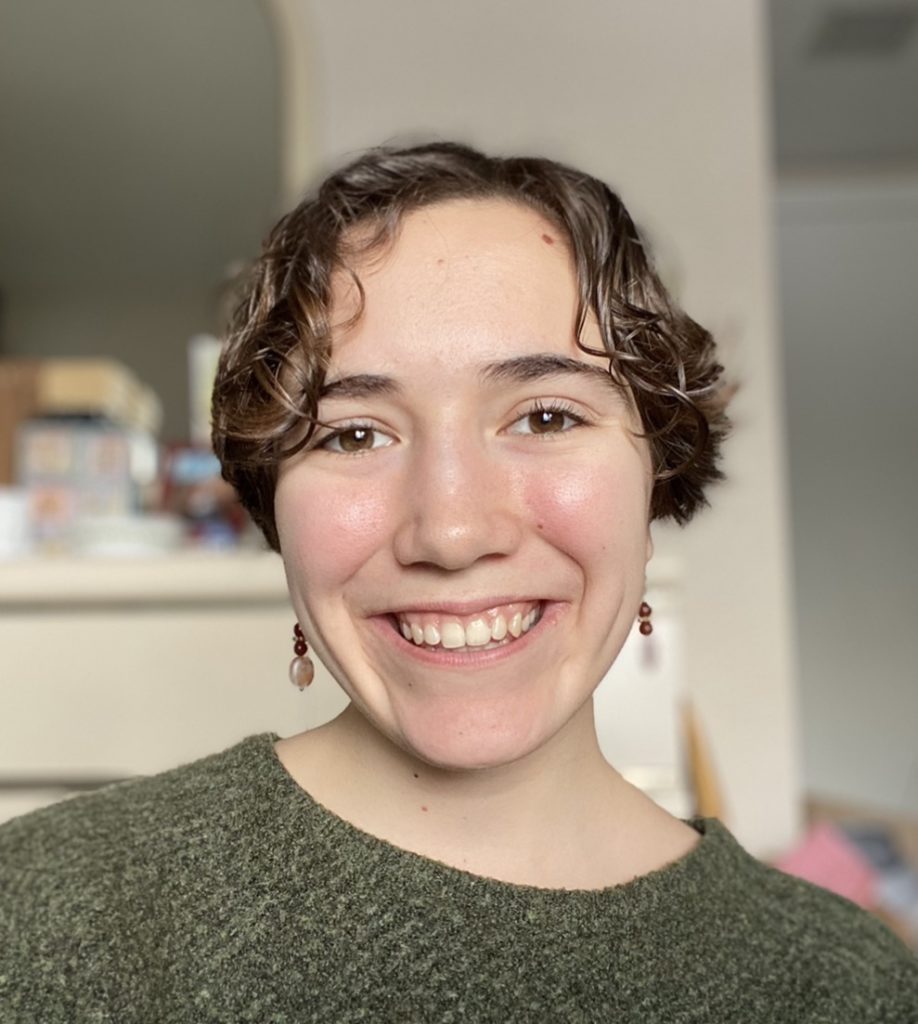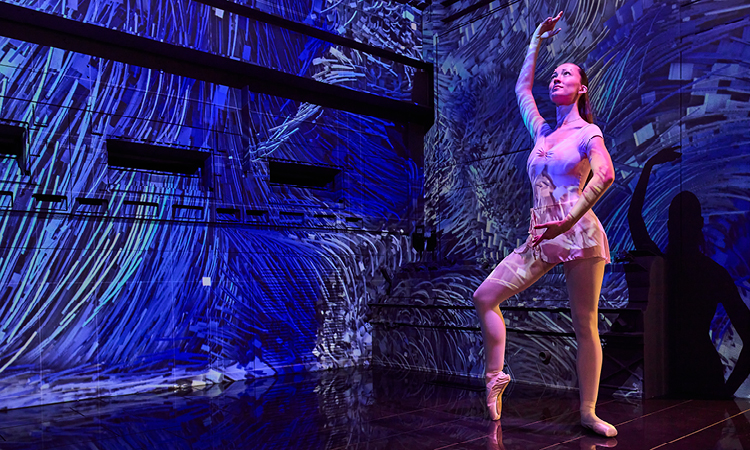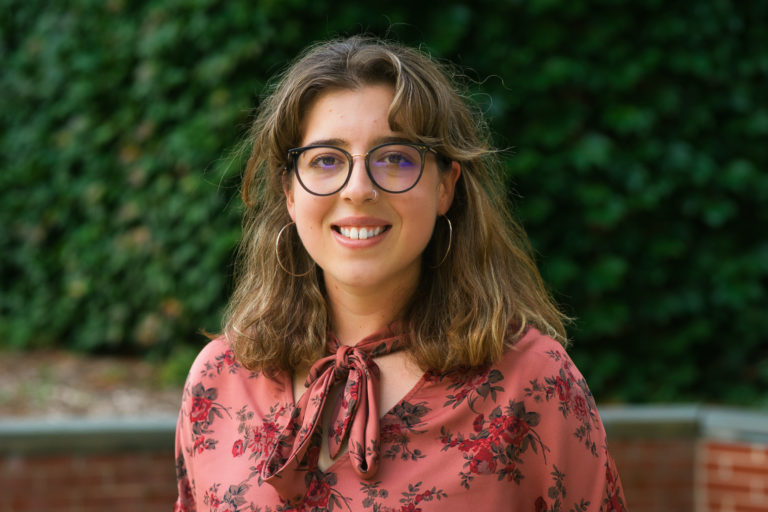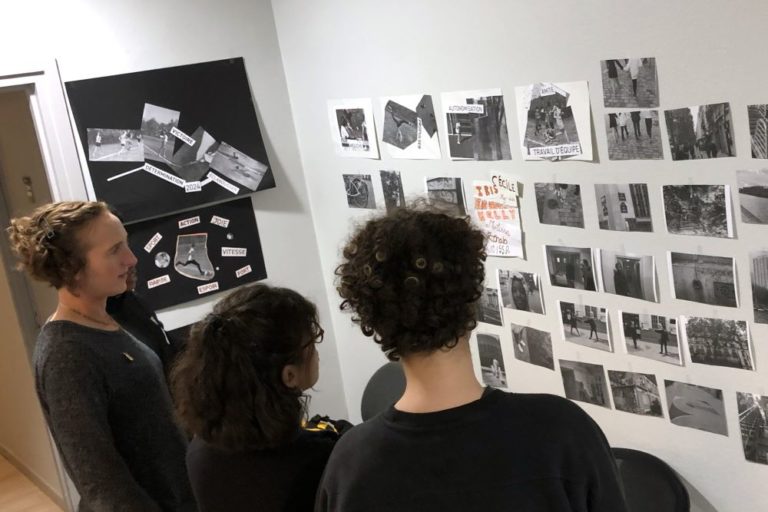Julia Rudlaff, a junior double majoring in English and Civil Engineering, received a CREATE! Micro-Grant to create a chapbook-length collection of poetry that addresses the pandemic’s effect on body image and gender identity.
The CREATE! Micro-Grant program selected 12 student projects, including Rudlaff’s, to each receive $500 to respond critically and imaginatively to events occurring during the pandemic.
For her project, titled “Unprecedented Body,” Rudlaff explored the intersections of body image, gender identity, and eating disorder recovery during the pandemic.
[Winning the grant] means that someone believes in my art and wants to support me in creating it. It also means that I have a community of other artists to learn from and observe.
“[Winning the grant] means that someone believes in my art and wants to support me in creating it. It also means that I have a community of other artists to learn from and observe,” Rudlaff said. “Winning a CREATE! Micro-Grant was especially meaningful during the pandemic because it inspired me to continue creating art even when it was challenging.”
Rudlaff was inspired to create “Unprecedented Body” after she encountered an article online that listed anorexia as a symptom of COVID-19.
“As someone who has struggled with anorexia, it was really jarring to see someone use the terms ‘loss of appetite’ and ‘anorexia’ interchangeably,” Rudlaff said. “That article is the inspiration for my first poem and it pushed me to think deeply about the effects of the pandemic on my own body image and recovery process.”

As she continued to write poetry for the collection, Rudlaff reflected on conversations with peers about their struggles with body image and gender identity, and how this struggle was exacerbated by isolation from COVID-19. Winning the micro-grant allowed Rudlaff to compensate peers that she interviewed for the project as well.
“At the beginning [of the project], I had a very structured idea for how I wanted to organize my pieces,” Rudlaff said, “but in the end, I had to let go of that structure to see how the pieces could connect with one another when there wasn’t a concrete separation of themes.”
The ability to transform her and her peers’ experiences with gender identity and body image into art was satisfying for Rudlaff, and this process also helped strengthen her confidence as a writer.
I loved the work of sitting down and taking a year’s worth of emotions and experiences and molding them into poetry. The process itself was really gratifying.
“It was really satisfying to take all these big, complex, layered feelings I’ve had about my body and gender during the pandemic and work it into poetry,” Rudlaff said. “It felt like I was baking something complicated and fickle, but I loved the work of sitting down and taking a year’s worth of emotions and experiences and molding them into poetry. The process itself was really gratifying.”
As an English major with a concentration in creative writing, winning the micro-grant was the perfect opportunity for Rudlaff to expand upon her passion for poetry. In the future, Rudlaff plans on writing a book of poetry, and the pieces she wrote for “Unprecedented Body” may serve as a basis for this work.
“[From working on this project] I learned I can be a writer, I can take an idea and follow through with it until it’s complete,” Rudlaff said. “I also learned that it’s okay to feel lost in the middle sometimes, and it’s okay to change your mind about how the finished art will look.”


